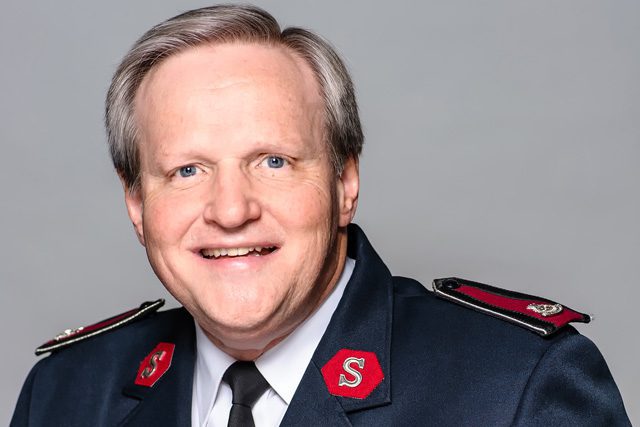by Ray Moulton, Lt. Colonel –
 God is at work! The Christian church is growing, growing faster than other world faiths. Various sources report that each day, tens of thousands of individuals are being added to the church worldwide. The Kingdom of God is expanding; God continues to work through his people to share his love and grace globally.
God is at work! The Christian church is growing, growing faster than other world faiths. Various sources report that each day, tens of thousands of individuals are being added to the church worldwide. The Kingdom of God is expanding; God continues to work through his people to share his love and grace globally.
The church in the western world, however, is not enjoying this growth and expansion. The number of Christians in what has been called Christendom (Europe, North America, and Australia) is shrinking. Those who study these trends are predicting in a few decades that the center of the church will shift from Europe and North America to Africa and South America. We are beginning to be the recipients of global mission activities and not the source.
Why is this? No doubt there are a number of factors or reasons. I would like to offer a perspective from my experience and observation that may be helpful in determining our ministry going forward.
It seems that a subtle but very different approach to ministry has developed in the west from that of the developing world. It may be viewed that the developing world is much closer to the Biblical approach to ministry, more closely aligned to the approach we find in the book of Acts than we practice in the west. It would appear that their approach or practice of ministry is more relational, more community based, more integrated than our approach in the west.
Let’s look at some values that drive our ministry in contrast with the approach in other parts of the world. As a caution, I have seen it can be difficult for those of us with a western mind set to appreciate this approach—not because it is complex or difficult, rather because it requires a cultural shift for us internally.
In the west, we generally start by looking for need in a community that we may address or confront. We look for areas, neighborhoods, families, or individuals with an identified need or lack. We then study, acquire knowledge, find an expert in the field, and develop an approach to meeting this need from a knowledge or expertise basis. A program or ministry response is planned, financial, property and human resources are marshaled, and we begin to provide our solutions for the neighborhood or families. In many ways this seems right to us. It appears to be a natural and appropriate approach to ministry development. There is a built-in bias that the community in need does not have the resources to meet their own needs, and that there is a significant lack in the people and their ability to adequately reverse their concerns. How many times do we hear about the lack of leaders or people with leadership ability? We can look at their history and not see any change, except negative ones. It becomes obvious to us that some outside intervention is necessary to reverse the situation.
Enter a different approach, one based on Biblical ministry and in the reality that we cannot bring together resources to throw at a problem. We must start with the people and what we find in the community. Research in the USA has shown that where community transformation has taken place, it happens not as a result of giving the neighborhood a solution, but instead comes from within the community’s assets; the strengths that exist have been allowed to be expressed—no, have demanded to be expressed—and by sheer human and divine action have expressed hope and optimism, have participated with community members, have built small groups of people to make a difference and, in time, have transformed the community.
We see this happening all over the developing world, with Christians living in community, bringing hope and grace, awakening the latent desire of others for a better life, and through prayer and work allowing the Spirit of God to transform lives and communities. Consequently, without external resources or solutions, they take hold of God’s resource, pray for change, experience reconciliation and transformation, and the kingdom of God grows. Churches multiply.
John records in his first chapter that “The Word became flesh and made his dwelling among us.” The incarnation of God is personal—human and divine becomes one of our neighbors. He did not bring programs, create committees, or fundraise. He became one of us—owned the situation we find ourselves in, took on the concerns of the people by becoming one of us.
As he grew and participated in his own ministry, he invested himself in others, his disciples; he involved himself in conversation with others—think of the woman at the well, the wealthy coming to him at night, family of the disciples, Roman centurions, and many others. While on occasion he brought healing and practical solutions, more frequently he looked for hope, engendered faith, and built on the resources available in the community.
Later in his Gospel, John twice records Jesus teaching his disciples, “As the Father has sent me, I am sending you.” Jesus is teaching us that our approach to ministry is to be the same as the approach his Father used for his own ministry: That we enter into a community as a participant, not as an expert to solve problems; that we look for God’s grace already there and at work expressed by hope and faith and build with that. That as we engage others in conversation, it is not as one coming to change them, rather to participate with them in what God is doing, to be willing to be involved in our own change and learning with the community. To be incarnational ourselves in ministry,











